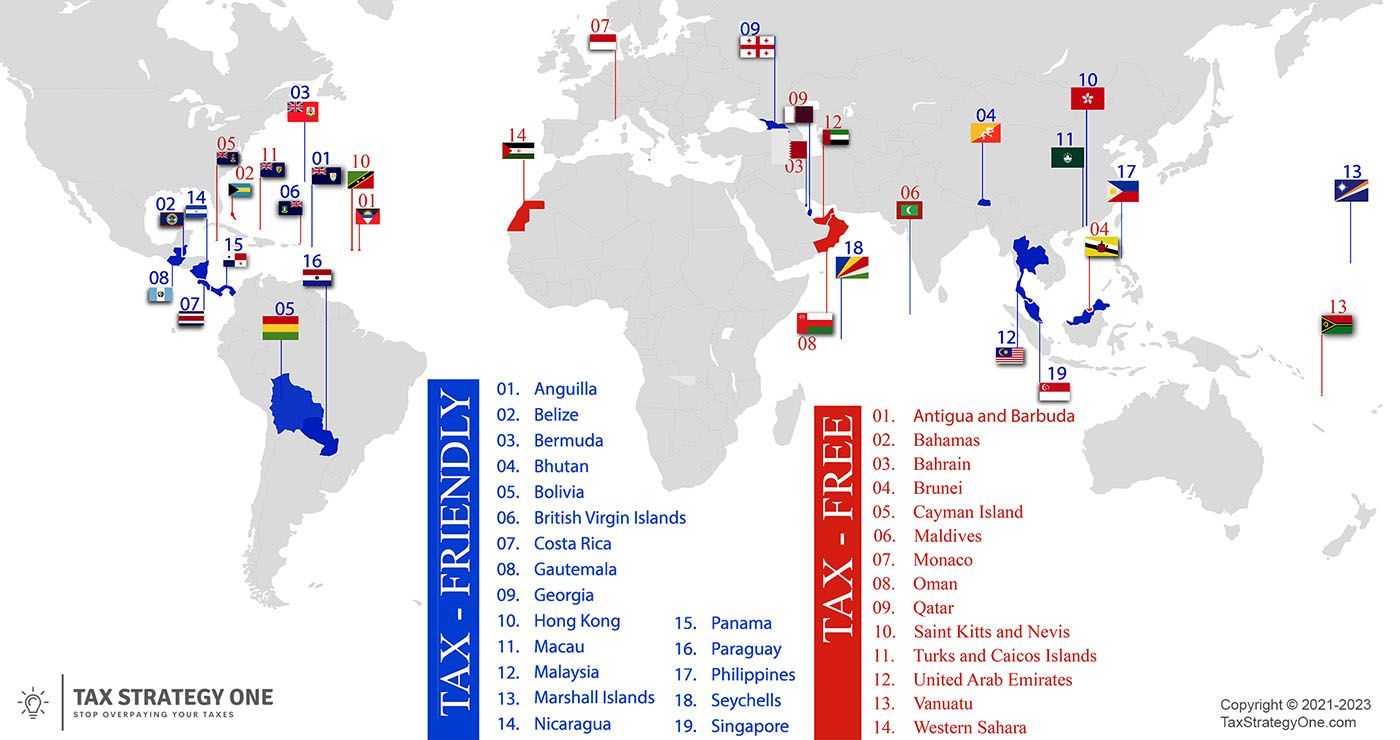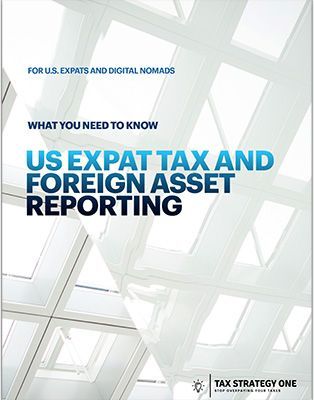Right Now is a Good Time to Fix 'Failure to Report' Problems (IRS requires disclosure of your Foreign Corporations and Assets)
U.S. Tax Court Ruled that the IRS Lacks Authority to Assess Penalties for Willful Failure to File Form 5471 - So it's a good time to catch-up on your missing foreign reports

Background:
In addition to filing your US 1040 Tax Return each year, you may—if you meet certain thresholds—also need to report your foreign financial activities (e.g., owning (and operating) foreign companies, foreign assets, or foreign financial accounts) to the IRS (or risk hefty penalties). This includes normal Americans living normal lives abroad who own and operate boring mom and pop businesses as corporations.
Introduction:
In a recent decision with strong implications and opportunities for U.S. expats and digital nomads, the U.S. Tax Court ruled in the case of Alon Farhy v. Commissioner that the IRS lacked statutory authority to assess penalties under section 6038(b). This section pertains to the willful failure to file Form 5471, an information return for U.S. persons with ownership and/or management interest in foreign corporations. Here's a breakdown of the case and its implications and opportunities.
The Case:
Alon Farhy, the taxpayer in question, owned 100% of a foreign corporation incorporated in Belize during his 2003 to 2010 tax years. He also held 100% ownership in another foreign corporation in Belize from at least 2005 through 2010.
Under section 6038(a), Farhy was legally required to file Form 5471 for each of these years. However, he willfully failed to do so, and his failure was not due to reasonable cause. Section 6038(b)(1) imposes a penalty of $10,000 for each annual accounting period during which a failure to provide required information persists. Section 6038(b)(2) adds a continuation penalty of $10,000 for each 30-day period (or part thereof) in which the failure persists after an initial 90-day notice period, up to a maximum of $50,000. Importantly, there is no specific statutory provision in the U.S. tax code authorizing the assessment of these penalties.
The Argument:
Farhy argued that section 6038(b) differs from numerous other penalty sections in the tax code in that it lacks a provision authorizing the assessment of penalties. Therefore, he contended that section 6038(b) penalties are not "assessable penalties," although they may still be collected through a civil action. The IRS, however, argued that the term "assessable penalties" encompasses all penalties in the tax code not subject to deficiency procedures.
The Tax Court Decision:
The U.S. Tax Court sided with Farhy's interpretation of the tax code. The court found that the IRS had assessed section 6038(b) penalties against Farhy without the statutory authority to do so. Consequently, the IRS could not proceed with collecting these penalties from Farhy via the proposed levy.
The court pointed out that Congress had explicitly granted the authority to assess penalties in various other sections of the tax code but had not done so for section 6038(b) penalties.
NEWS YOU CAN USE:
This means the IRS cannot just say you owe failure to report penalties and make you pay — just on their say-so. So if you've failed to report items like your ownership or management in foreign corporations, here’s your chance to fix it before the penalties return.
New Steps: Take advantage of the opportunity (as Congress will sooner or later put the costly penalties back in place and the IRS will spend new billions on new people armed with new weapons to collect taxes from you).
Ask yourself:
- Did you have an ownership or management interest in an entity in a foreign country?
- Did you get any money or other assets from a country outside the US?
- Do you own any assets outside the US?
If you answered yes to any of these questions, you likely need to file additional ‘reporting’ forms with the IRS. NOW is the time to catch-up. To solve missing IRS disclosure report problems, contact us:
Copyright 2020-2023
Tax News You Can Use
Profit and prosper with the best of expert advice on taxes, retirement, personal finance and more - straight to your e-mail.
Sign up for our free monthly Expat tax e-newsletter
No spam, and we do not sell personal information we gather from prospects or clients.



